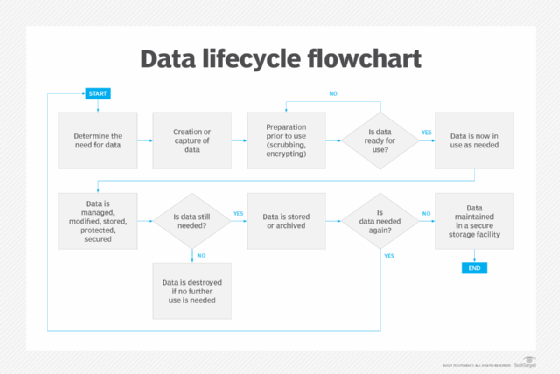Ideal Practices for Data Destruction to Fortify Your Cyber Security Structure
Ideal Practices for Data Destruction to Fortify Your Cyber Security Structure
Blog Article
The Vital Nature of Data Devastation in Upholding Computer Safety Services and Protecting Against Unauthorized Access
In a period where data breaches and identification theft are significantly prevalent, the significance of effective data destruction can not be overemphasized. Numerous approaches, from information wiping to physical destruction, serve as important safeguards versus unauthorized accessibility.
Significance of Information Devastation
In a significantly electronic world, the value of data destruction can not be overemphasized. As companies accumulate large quantities of delicate information, the possible consequences of falling short to correctly get rid of and handle of that data become increasingly serious. Data breaches, identity theft, and business espionage position substantial risks, underscoring the requirement of efficient information damage methods.

Furthermore, as technology advances, so too do the approaches through which malicious actors look for to manipulate delicate details. Organizations needs to continue to be aggressive and watchful in their information devastation techniques to guard against these advancing threats. By focusing on data devastation, business not only protect their assets yet additionally foster count on among stakeholders and customers, demonstrating a commitment to liable information administration and protection methods.
Approaches of Effective Information Devastation
To make sure the permanent and complete damage of delicate information, organizations can employ a range of effective techniques customized to their particular requirements. Among the most typical methods is information cleaning, which includes utilizing specialized software application to overwrite existing information multiple times, making healing essentially impossible. This is especially beneficial for disk drives and solid-state drives, where conventional deletion methods are insufficient.
Another effective technique is degaussing, which utilizes strong electromagnetic fields to interrupt the magnetic domains on storage space media, making the data irretrievable. This approach is specifically suited for magnetic storage devices, such as disk drive and hard drives.
Physical devastation is likewise a viable choice, entailing the shredding, squashing, or incineration of storage devices. This technique warranties that data can not be recovered, making it suitable for companies managing extremely sensitive details.

Conformity With Data Security Rules
Organizations need to not just concentrate on effective information destruction approaches but additionally make certain conformity with information protection guidelines that govern just how sensitive details is taken care of and thrown away. Abiding by these guidelines is crucial for safeguarding personal information and preserving consumer trust. Regulations such as the General Data Defense Policy (GDPR) in the European Union and the Health Insurance Policy Portability and Liability Act (HIPAA) in the USA enforce strict standards on information monitoring, that include demands for the safe and secure disposal of delicate information.
To attain conformity, companies need to carry out detailed data damage policies that straighten with these legal frameworks. This consists of identifying data that needs devastation, establishing procedures for protected methodsâEUR" such as shredding physical media or utilizing software that satisfies market standards for data wipingâEUR" and maintaining comprehensive records of devastation activities. Regular audits should be performed to make sure adherence to these policies and to recognize any type of potential locations for enhancement.
Failing to abide by data defense policies can lead to considerable legal implications, including substantial fines and damages to an organization's reputation. Integrating compliance right into data destruction methods is not only a lawful obligation yet additionally an important part of over here a durable details safety strategy.
Consequences of Poor Information Handling
Poor information handling can result in serious effects that extend beyond instant functional setbacks. Organizations may encounter substantial financial losses as a result of data violations, which commonly result in expensive removal initiatives, legal charges, and regulatory fines. These monetary effects can hinder and strain resources growth, eventually impacting a company's lower line.
In addition, poor data handling can drastically damage a company's credibility. Companions, stakeholders, and clients might shed count on in an entity that fails to shield sensitive details, leading to reduced consumer commitment and potential loss of business chances. This disintegration of depend on can take years to rebuild, if it can be restored at all.
Additionally, companies might deal with legal implications emerging from non-compliance with information protection regulations. Such offenses might lead to penalties and investigations, worsening the economic burden and further staining the organization's photo.
In the world of cybersecurity, insufficient data monitoring practices can create susceptabilities that make systems a lot more vulnerable to unapproved gain access to and cyberattacks. Eventually, these effects highlight the important relevance of carrying out robust data handling procedures to guard delicate information and maintain business integrity.
Finest Practices for Secure Data Disposal


To start with, data should be categorized according to its level of sensitivity. Delicate information needs extra rigorous disposal techniques, such as shredding physical records and utilizing sophisticated software for digital information cleaning. Utilizing qualified data damage solutions makes sure compliance with industry policies and requirements.
Second of all, companies ought to apply a data disposal policy that mandates normal audits. This policy should detail the procedures for information retention and destruction, ensuring that outdated data is disposed of without delay and securely. Training employees on these protocols is necessary to cultivating a culture of safety awareness.
Last but not least, maintaining thorough documents of disposed data improves responsibility and gives a clear audit path. This documentation needs to include the sort of data damaged, the approach utilized, and the day of disposal.
Verdict
In conclusion, the necessary of effective data devastation is evident in its duty pop over to this site in boosting computer safety services and mitigating unauthorized gain access to threats. Adopting robust methods such as data wiping, degaussing, and physical devastation, alongside compliance with regulations like GDPR and HIPAA, is vital for safeguarding delicate information. Disregarding appropriate data disposal methods can bring about serious consequences, consisting of data violations and legal effects. Applying finest practices in safe and secure information disposal eventually strengthens organizational integrity and customer trust fund.
In an era where data breaches and identification theft are progressively widespread, the importance of reliable data devastation can not be overemphasized. data destruction. Data great site breaches, identity theft, and business reconnaissance posture significant risks, emphasizing the necessity of effective data devastation practices
Conformity with laws such as GDPR and HIPAA mandates that companies implement stringent data protection steps, including the protected damage of data at the end of its lifecycle.
By focusing on information devastation, companies not just secure their assets however likewise foster trust amongst stakeholders and customers, demonstrating a commitment to liable data administration and security methods.
Organizations need to not just focus on effective information destruction approaches but also guarantee compliance with data protection laws that control just how sensitive info is handled and disposed of.
Report this page